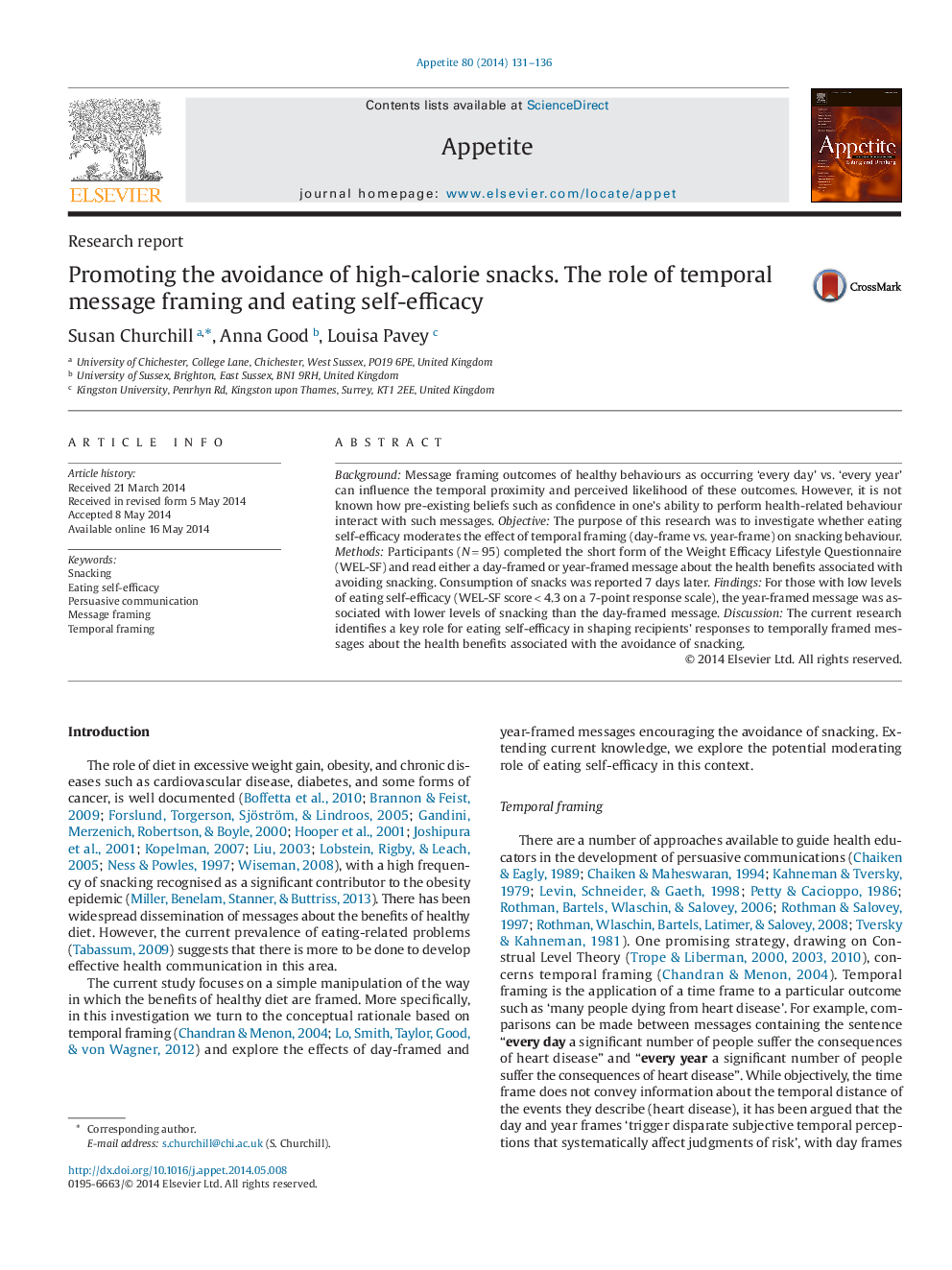| کد مقاله | کد نشریه | سال انتشار | مقاله انگلیسی | نسخه تمام متن |
|---|---|---|---|---|
| 939422 | 1475400 | 2014 | 6 صفحه PDF | دانلود رایگان |
• We studied the effects of temporal message framing and eating self-efficacy on snacking.
• Eating self-efficacy moderated the effect of temporal message framing (day vs. year).
• Low self-efficacy participants reported less snacking in the year-frame condition.
Background: Message framing outcomes of healthy behaviours as occurring ‘every day’ vs. ‘every year’ can influence the temporal proximity and perceived likelihood of these outcomes. However, it is not known how pre-existing beliefs such as confidence in one's ability to perform health-related behaviour interact with such messages. Objective: The purpose of this research was to investigate whether eating self-efficacy moderates the effect of temporal framing (day-frame vs. year-frame) on snacking behaviour. Methods: Participants (N = 95) completed the short form of the Weight Efficacy Lifestyle Questionnaire (WEL-SF) and read either a day-framed or year-framed message about the health benefits associated with avoiding snacking. Consumption of snacks was reported 7 days later. Findings: For those with low levels of eating self-efficacy (WEL-SF score < 4.3 on a 7-point response scale), the year-framed message was associated with lower levels of snacking than the day-framed message. Discussion: The current research identifies a key role for eating self-efficacy in shaping recipients’ responses to temporally framed messages about the health benefits associated with the avoidance of snacking.
Journal: Appetite - Volume 80, 1 September 2014, Pages 131–136
